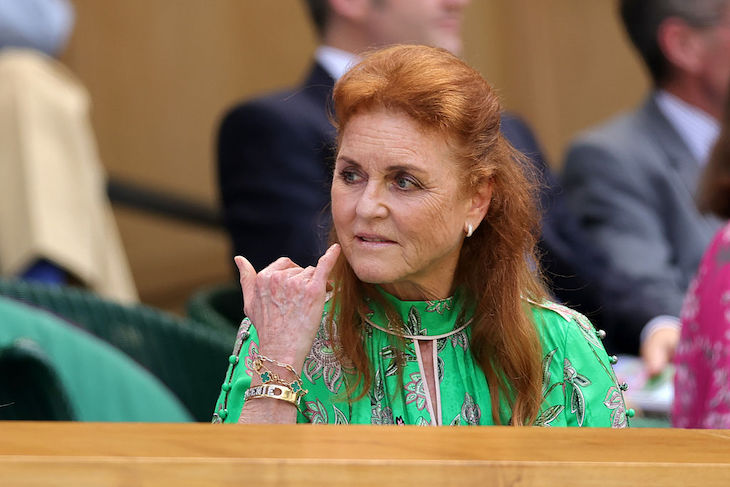Emmanuel Macron couldn’t have been clearer about why he wants to boost defence spending: ‘We want to protect peace in Europe and thus deter anyone from attacking us,’ France’s president said last week. After years of hesitation, during which the Russian threat was underestimated, at least in Western Europe, it’s about time France is taking defence seriously.
Algeria’s rulers are clear on what they think of France. But Macron, who talks tough on Russia, stops short of retaliating
Macron wants to raise defence spending to 3 or 3.5 per cent of the country’s GDP, up from 2.1 per cent. But Macron’s resolute stance against the Russian threat would look more credible had it not been preceded by naive comments, bordering on cowardice, regarding another hostile regime, closer to France and with a per capita GDP half that of Putin’s Russia: Algeria.
For years, Algeria’s government has been defying France, having reneged on parts of the 1968 migration pact, by refusing to take back its criminals and illegal nationals. The country’s regime has done so while harassing its most prominent opponents on French soil: one target was the writer Kamel Daoud, winner of the 2024 Goncourt Prize, one of France’s most prestigious literary distinctions. Daoud was the victim of a prolonged smear campaign conducted at Algeria’s behest, after he took aim at the country’s leadership.
In Algeria, Franco-Algerian writer Boualem Sansal, known for his criticism of Arab dictatorships and Islamism, languishes in a cell. This week, the 80-year-old was sentenced to five years after he was accused of undermining the country’s territorial integrity. When Macron was recently questioned about Sansal, he stated: ‘I have confidence in president (Abdelmadjid) Tebboune and his discernment to know that all this is not serious and that we are dealing with a great writer who, moreover, is ill’. In light of Sansal’s jail sentence, Macron’s words now look rather hollow.
The Islamist attack in Mulhouse on 22 February, which left one dead and seven injured, was carried out by an Algerian whom France had tried to deport fourteen times, only to be thwarted by his home country’s refusal to help. The debacle prompted French Interior Minister Bruno Retailleau to toughen his stance: ‘There would have been no attack in Mulhouse if Algeria had respected the law and its obligations,’ he declared, advocating for a ‘rapport de force’ (showdown) with Tebboune’s dictatorship.
But Retailleau didn’t reckon with Macron sabotaging the government’s position by ruling out any retaliation, particularly on migration issues.
‘Things are done well when they are done with rigour, but they must not become the subject of political games, wherever they may be. They must be done with what our countries deserve: a sense of reality and a culture of results,’ Macron warned a week after the Mulhouse attack.
Many French voters don’t agree. Algerians are overrepresented in French jails: they account for 20 per cent of foreigners incarcerated in France. It is clear that some Algerians struggle to adapt to life in France and assimilate with French values. Yet Algerians benefit from favourable treatment when it comes to residency in France, arguably due to misplaced colonial guilt. They make up the most numerous immigrant group in France today.
Officially, Macron’s refusal to engage in a standoff with the Algerian government is driven by a desire for appeasement: ‘Millions of French people were born to Algerian parents, are sometimes dual nationals. They have nothing to do with these debates and live in peace, adhering to the values of the Republic. (…) They too have the right to a quiet life,’ the president said last month. But appeasing Algeria’s brutal government, and turning a blind eye to its misdeeds, does little to help those living in exile.
Macron’s top team reportedly fears the consequences of a crackdown on criminal elements within the Algerian diaspora. So France’s leader chooses capitulation when it comes to the question of Algeria. Needless to say, this softly-softly approach is not reciprocated: in 2023, Algeria’s government decreed that an anti-French verse should be restored to the country’s national anthem. ‘O France, the time of reproof is over/ And we have closed it as a book is closed/ O France, this is the day of reckoning/ So prepare to receive from us our answer!’.
Algeria’s rulers are clear on what they think of France. But Macron, who talks tough on Russia, stops short of retaliating. His gentle approach isn’t working.







Comments